Clinical Laboratory Sciences
Bachelor of Science
Gain a solid foundation in the sciences, hands-on experience with current medical technologies, and fast job offers in your field.
Clinical laboratory scientists (also known as medical technologists or technicians) play essential roles in today's hospitals and medical practices. Whether identifying infections, delivering safe blood products for transfusions, or evaluating metabolic function, you will help patients and their physicians make the best medical decisions possible. The field has a shortage of qualified professionals, leading to excellent career prospects nationally and locally. Nazareth develops ethical professionals dedicated to offering the best health care.
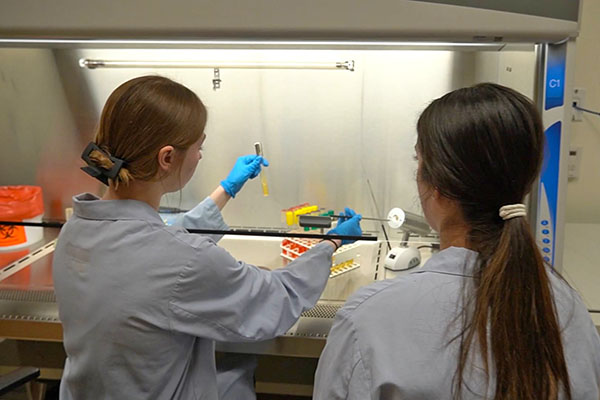
Highlights
Clinical rotations with area hospital partners
Dedicated laboratory space in state-of-the-art Peckham Hall
100% placement rate in-field or continuing education
Entry-level positions are abundant; full-time roles typically start around $65,000–$70,000 per year
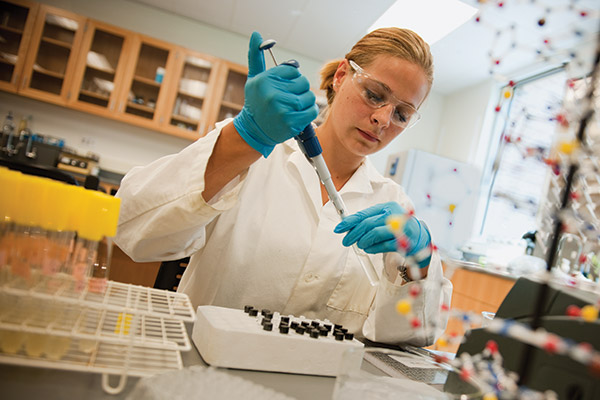
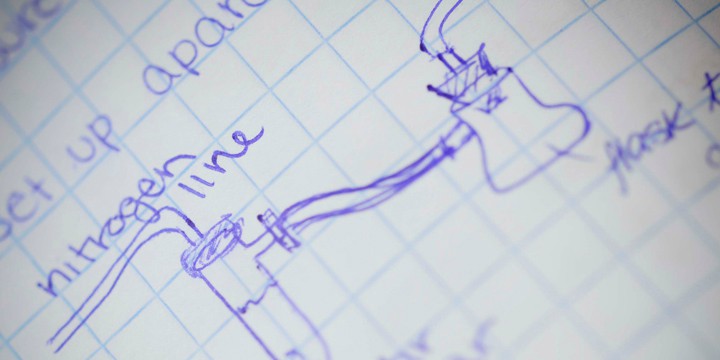
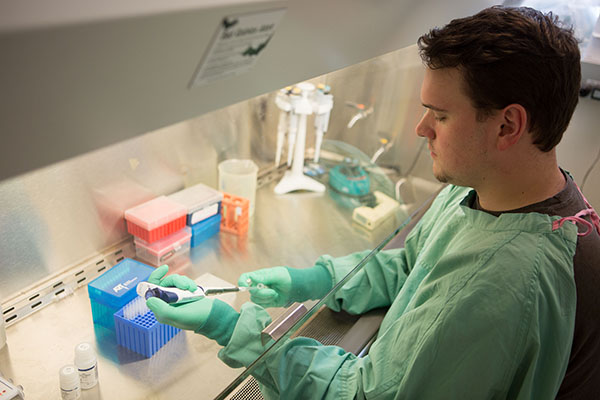
Career Paths
- Clinical laboratory scientist
- Medical technologist
- Medical laboratory technician
- Public health laboratory scientist
- Biotechnologist
- Forensic science technician
Career Field
- Clinical laboratory scientists (medical technologists / technicians) use complex instrumentation to perform biochemical, cellular, microbiologic, and molecular testing. Nurses and physicians use the test results to guide treatment and help patients make informed decisions.
- While many patients never meet us directly, our work helps make nearly three quarters of all medical decisions.
- Clinical laboratory science jobs are primarily in hospitals or independent laboratories.
Career Outlook
- Clinical rotations provide experience and job connections at area laboratories, which face a shortage of clinical laboratory scientists/medical technologists and technicians.
- Employment opportunities are projected to grow much faster than average, driven by retirements of current professionals.
- Certification by American Society for Clinical Pathology fulfills hiring requirements in many states. New York state licensure is transferrable to nearly every state with licensure.
- Additional career opportunities include employment in the biotechnology industry, public health and safety laboratories, and graduate medical or scientific education.
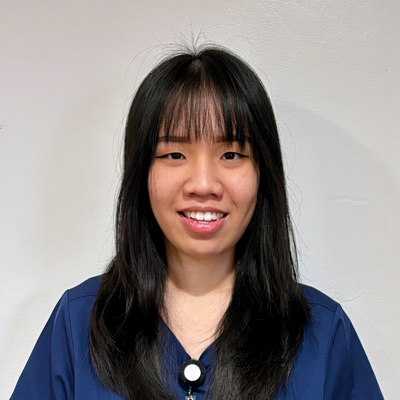
Alumni Spotlight
“My major in clinical laboratory science directly prepared me for my role as a medical technologist through rigorous coursework and hands-on clinical experiences. This has prepared me to transition smoothly into performing and analyzing patient tests accurately and efficiently in a real clinical laboratory setting.”
— Minh Thao Bui ’25, medical technologist at University of Rochester Medical Center, Rochester, New York
900
square-foot general biology lab
$1.2M
anatomy and physiology laboratory complete with a six-table human gross anatomy dissection suite
Top 20
ranked science labs in the nation by The Princeton Review
What does a clinical lab sciences major do?
Transfer Students
Our flexible program accepts students at any step in their academic careers. Complete the program in two years when transferring with a minimum GPA of 2.7 overall and in STEM classes, plus this coursework:
Research option
As a clinical lab sciences major, you have the option to pursue research projects related to biology, chemistry, or biomedical sciences with Nazareth faculty.
Example rotations/field experiences
- University of Rochester Medical Center Laboratories
- Highland Hospital
- F.F. Thompson Hospital
- United Memorial Medical Center
Program Director
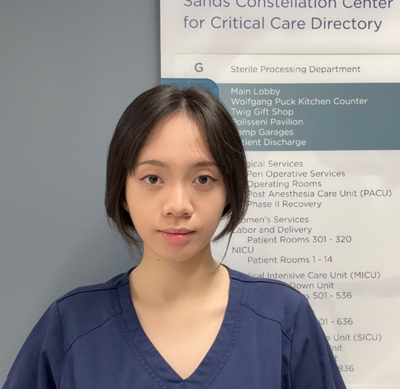
Alumni Spotlight
“The professors personalize their teaching to support student success, and the high demand in the field provides job security, with many students receiving offers to work as medical technologists before graduation. Because the curriculum is built on core courses that are also central to other science and healthcare majors, CLS is also a flexible option for students still exploring their career paths.
"The CLS program inspired me to pursue a career as a physician assistant and apply my lab knowledge to become a competent provider. With the strong academic preparation and supportive environment, I received multiple PA school acceptances.
“Naz is a place where you become part of a close-knit community and are supported by faculty who really get to know you and are invested in your success.”
— Nam Dinh ’25, who’s going on for a master’s at Arcadia University